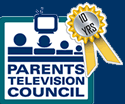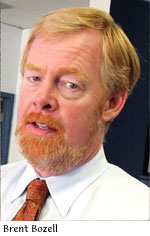
|
SCNA NUDIST FORUM
Return to Nudist Forum Menu |

|
An Orchestrated Conspiracy of Harassment
INDECENCY COMPLAINTS TO FCC DWINDLE…EXCEPT FROM THE PARENTS TELEVISION COUNCIL!
11/10/05, Washington DC – In the month after Janet Jackson's breast was bared on CBS during the 2004 Super Bowl halftime show, the Federal Communications Commission was so deluged with indecency complaints that they averaged 13 a minute.
Today, what was a flood isn't exactly a trickle — still about 70 complaints a day. But the frenzy over on-air indecency has cooled.
"As long as there isn't another Janet Jackson-type Super Bowl incident, the public's already short attention span will remain focused in other places," said lawyer Alex N. Vogel, a lobbyist for CBS parent Viacom Inc.
Much of the plunge in the number of complaints stems from a drop in filings by the Los Angeles-based Parents Television Council, a public interest group that single-handedly helped push the number to 1.4 million last year. It has been estimated that the group, which bombarded the agency over the Internet, accounted for 90% of the complaints.
L. Brent Bozell III, a longtime conservative commentator founded the Parents Television Council in 1995 and continues to serve as its president. An article in the Washington Times reported the Parents Television Council claimed 860,000 members nationwide in 2004, with 28 chapters in 40 states.
The council is based in Los Angeles, although much of its work is done at a satellite office in Alexandria, where Bozell works. It shares the space with other groups Bozell also runs, including the Media Research Center, which says the press has a “liberal bias.”
Here is how the PTC works: The council employs six analysts at its Alexandria office who monitor tapes of the previous evening's television and radio broadcasts. If he sees something he deems inappropriate, Bozell then issues an email alert and directs members to the website of the Federal Communications Commission, where a form can be filled out on-line to register a complaint.
To show the power of this one group, in 2002, after PTC started issuing its alerts, there were 13,922 complaints about 345 shows. (By comparison, the previous year it received 346 complaints about 152 programs.) In 2003, the FCC received 240,350 complaints about 318 programs. All but 513 of those complaints focused on nine shows, all of them PTC targets.
Then came Janet Jackson. According to FCC statistics, the agency was deluged with 530,885 complaints about 23 shows between the beginning of January and the end of February that year. All but 57 of those complaints focused on CBS' Super Bowl halftime show. (Most of the others criticized Howard Stern’s radio show.)
The FCC's rules prohibit broadcasters from airing material containing sexual and excretory functions between 6 a.m. and 10 p.m., when children are most likely to tune in. The rules apply only to over-the-air radio and television stations, not their cable and satellite counterparts.
Nonetheless, broadcasters are monitoring their material more closely. It takes just a single documented complaint to the FCC to trigger an indecency review.
Since the outrage over the Super Bowl halftime show, the FCC has gotten tougher on broadcasters, and Congress passed a bill that dramatically raises the maximum amount the FCC can fine broadcasters for violating indecency standards. In 2004, the FCC recommended a record $7.7 million in fines, including a $550,000 penalty for the Super Bowl incident. In 2005, the FCC has recommended none.
So far this year, complaints to the Federal Communications Commission from January through September have totaled 26,185. All but five have come from members of the PTC.
Critics say the Parents Television Council has become too powerful, charging the organization with pushing an agenda that threatens the First Amendment.
“They are the squeaky wheel,” said Robert Corn-Revere, a lawyer who represents a group of media conglomerates, activists and performers.
Critics of the council contend that its orchestrated campaign created the misimpression of a widespread uprising among viewers, noting that many of the shows the group lambastes, such as "CSI: Crime Scene Investigation" and "Desperate Housewives," command huge ratings.
“There are tens of millions of people who are watching these shows that a handful of people complain are indecent,” said Jim Dyke, executive director of the industry-funded website TV Watch (www.televisionwatch.org).
The controversy over the number of complaints, their sources, and the types of broadcasts being criticized are likely to become political grist as the Senate Commerce Committee begins hearings on what Republican leaders call "An Open Forum on Decency." The list of speakers has yet to be finalized but you can bet it will include Brent Bozell.

January 2007 - A 1.6-second broadcast of a football fan's T-shirt cost Fox $50,000 and caused all televised sporting events from then on to have a 15-second delay after the PTC flooded the FCC with complaints. No other complaints were received about the incident..
KAISER FAMILY FOUNDATION’S WATCHDOG STUDY
Meanwhile, the self-appointed watchdog Henry J. Kaiser Family Foundation claims that 70% of primetime sitcoms, dramas and reality shows – a number nearly double what it was in 1998 – include what they define as “sexual content” while depictions of abstinence or "safe sex" are on the wane.
However, the study’s definition is so broad that it includes talking about sex, comic banter, kissing and touching. When the numbers are examined more closely, only 10% of the shows depicted or implied sexual intercourse, and overt sexual activity was even far less common.
Also lost in the details is that the study also included cable networks such as HBO and TNT, where practically every program contains sexual content or innuendo. Not included were sports or children's programs.
Kaiser, a nonprofit group in Menlo Park, Calif., makes no recommendations in its report. But Kaiser officials have been on a mission for years to focus attention on how the proliferation of sex on TV is contributing to teenage pregnancy. Last year, a Rand Corp. survey of 1,792 adolescents found that teens who watched TV for more than 20 hours per week were almost twice as likely to have sex earlier than teens who didn't.
However, Robert J. Thompson, founder of the Center for the Study of Popular Television at Syracuse University, noted that teen pregnancy rates soared in the U.S. long before sex became a staple of TV shows.
Still, Tony Perkins, president of the Washington-based Family Research Council, said the Kaiser study underscored his belief that television was having a coarsening effect. "The sex depicted on television does have an effect on kids. If we are what we eat, then we become what we watch."
Results of the 2005 Kaiser Foundation Study*:
Percentage of programs with any sexual content:
Percentage of primetime shows with sexual content by genre:
Percentage of shows that had the following:
* Based on 3,780 scenes airing from October 2004 to April 2005
|

